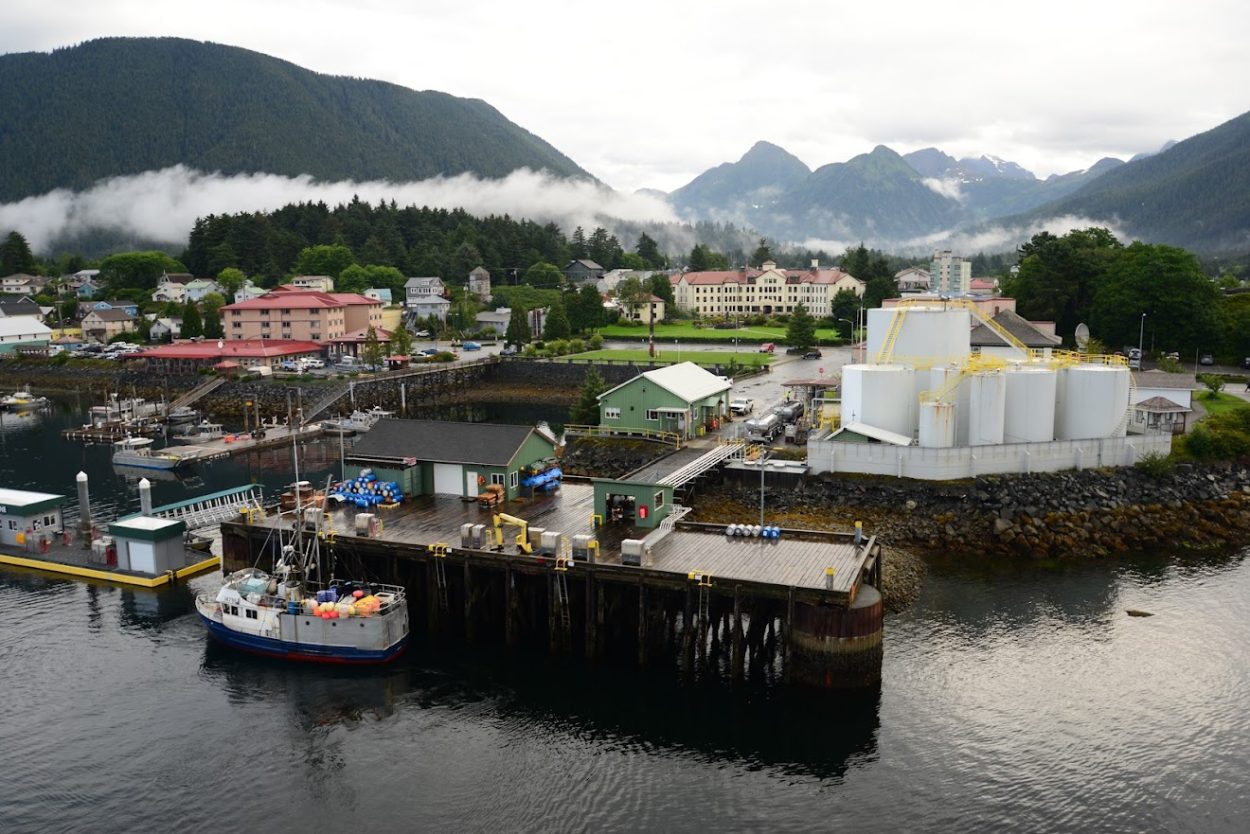
Developing a community-wide renewable energy strategy is the top priority for Sitka’s new Sustainability Commission. The recently-formed commission is all-volunteer, but it has its own staff member in City Hall. They also plan to investigate opportunities to divert Sitka’s waste stream, which is currently barged off-island, and electrify the city’s fleet of vehicles.
The Sitka Assembly approved the commission’s goals at its last meeting.
The Sustainability Commission is the newest city commission, a permanent iteration of the Climate Action Task Force, which disbanded last fall. It advises the assembly with the long-term goals of improving the economic, social and environmental sustainability of the city. The volunteer commission also has the help of a new city staffer, a sustainability coordinator position that was created last year.
Commission Chair Katie Riley said in presenting the group’s annual plan to the assembly, she hoped to move away from some of the buzzwords around sustainability, and toward more concrete and realistic steps.
“Some of the things we’re looking at [are] how to pursue infrastructure and capital improvement projects with an eye towards future needs and demands. How we’re working with our municipal utility to be able to determine and meet the growing demand for electricity from residents and businesses as we transition to a clean energy future, and also how we’re finding ways to help the city save money and wisely steward our resources, whether they be natural resources, financial resources or energy resources and make Sitka a more self-sufficient community,” Riley said.
View the Sustainability Commission’s work plan for 2023-2024 here
Riley said for the last five months, the commission has been working to narrow down its goals for the next year, from around 20 to three: the first and top priority is to develop a community renewable energy strategy. Riley said the commission hopes to secure a federal grant ETIPP, or Energy Transitions Initiative Partnership Project, to fund that process.
The second is to look at options for diverting the city’s solid waste, the bulk of which is currently shipped out of town to a landfill in Eastern Washington. And the commission’s third goal is to develop a plan to transition the city’s fleet of vehicles to electric.
During public comment Leah Mason voiced support for the commission’s priorities for next year. She also said she hoped they would undertake a new greenhouse emissions study as part of the community energy strategy that looked into transportation into and out of Sitka .
“Electric passenger vehicles are a small but important part of this equation, and I support the idea that the city can reduce its own greenhouse gas emissions through making changes to its own vehicle pool,” Mason said. “However, it’s also important to begin the longer term work of facilitating transitions for other very critical elements of life as we know it in Sitka. Retaining the services of barges, ferries and the fishing fleet in a carbon neutral world underpins the sustainability of this community in the long term.”
Assembly member Crystal Duncan said she supported the commission’s plan, but worried about how lofty their goals were for the upcoming year.
“Goal one, goal two, and goal three all seem huge. And I really appreciated the commission intensity that you wrote into that, and you guys were very realistic,” Duncan said. “For all three goals, I saw that there was a high intensity required, and not only of the commission, but also staff. And you broke it up by quarter, but it’s high intensity this entire first year. You guys are volunteers. You’re passionate, but I just am worried about three large scale goals.”
Riley said the commission didn’t expect to knock out all three goals by the end of next year, and what doesn’t get finished would roll over into the next year’s plan.
Assembly member Tim Pike voiced support for the plan. He said he was glad the goals were “ranked” by importance, but also noted that they’ll take some time.
“I have been part of organizations where we tried to eat the herd of elephants, instead of just an elephant…if we pull ourselves too thin, we’re not going to get much accomplished,” Pike said.
“I think your first goal is, is probably a really good start, and build some success and then work our way down through the rest of them,” Pike said. “We’re not going to get through them in a year…I like what I see. But you got the herd out there.”
The assembly approved the sustainability commission’s goals for 2023 and 2024 unanimously.






























